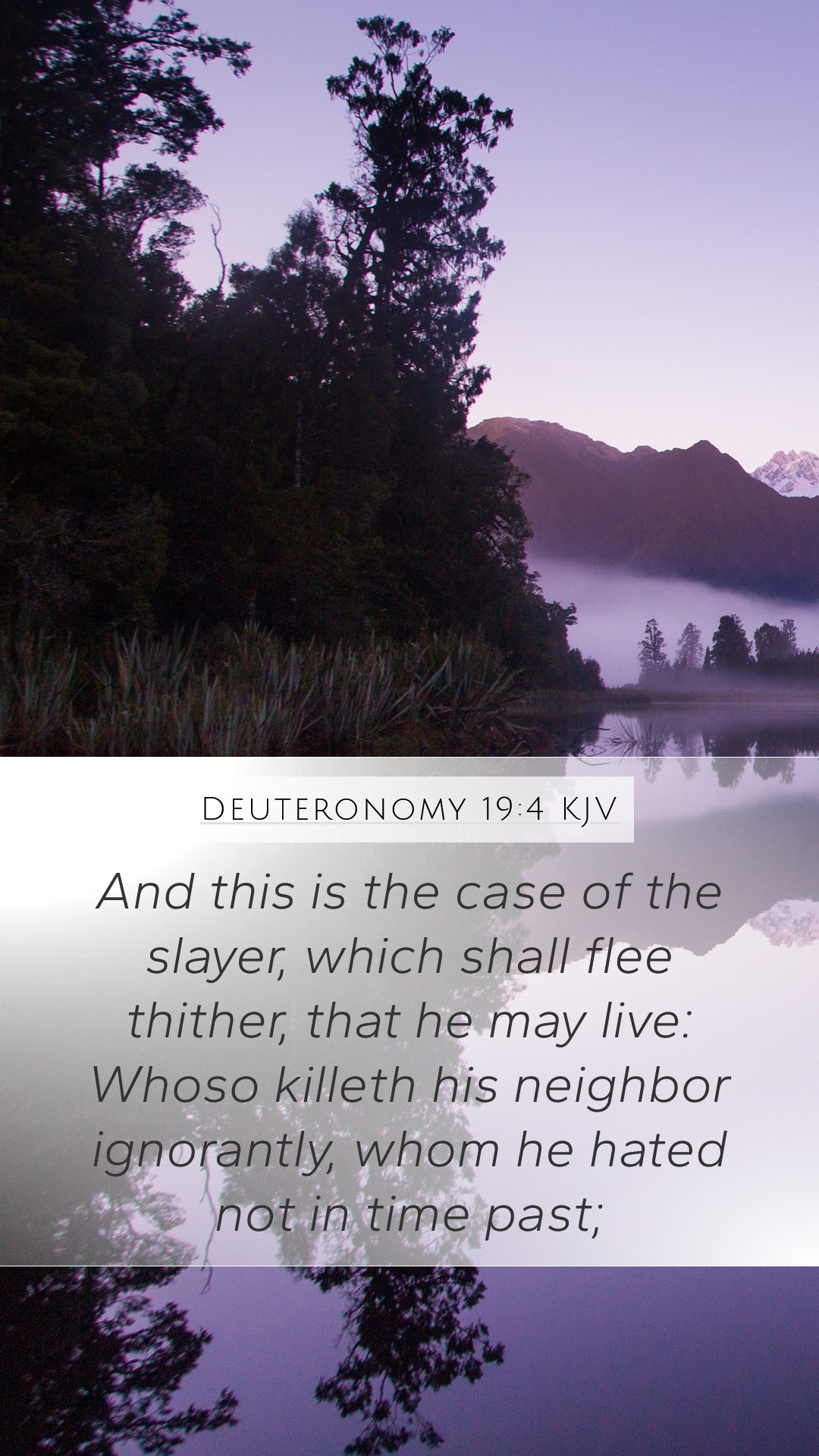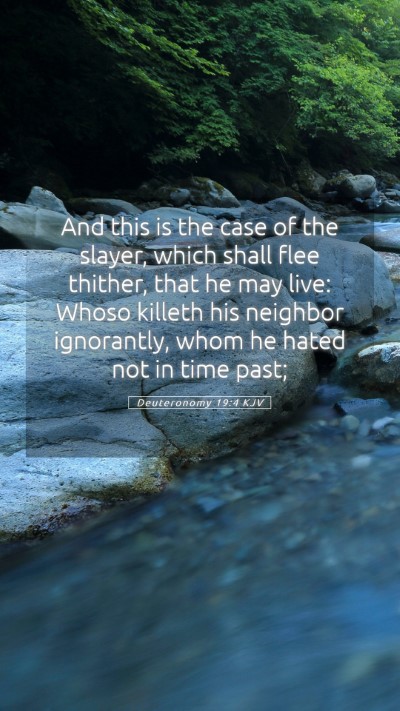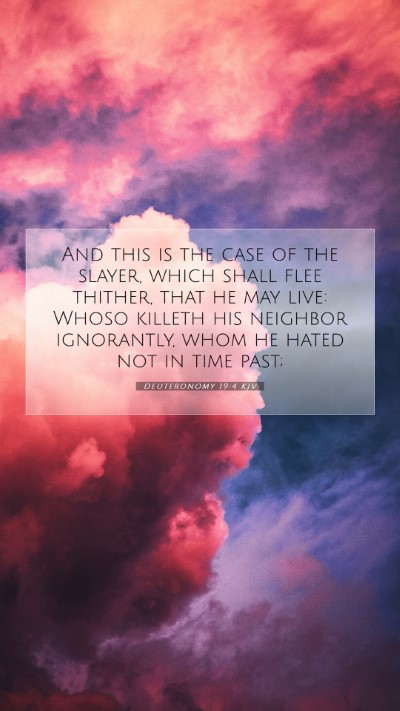Understanding Deuteronomy 19:4
Bible Verse: Deuteronomy 19:4 - "And this is the case of the slayer, which shall flee thither, that he may live: whoso killeth his neighbor ignorantly, whom he hated not in time past."
Overview: This verse establishes a vital principle regarding the cities of refuge in ancient Israel, focusing on the regulation of manslaughter and the provision for protection for those who unintentionally kill another person. It serves as a cornerstone of biblical justice, emphasizing God's concern for human life and mercy for the innocent.
Meaning of Deuteronomy 19:4
This verse discusses the guidelines surrounding accidental killing, outlining that a person who accidentally causes death is not to be treated as a murderer and thus seeks refuge in designated cities. It distinguishes intentional murder from unintentional acts, reflecting God's justice and compassion.
Bible Verse Interpretations
- Matthew Henry's Commentary: Henry emphasizes the distinction between malicious intent and an accidental act of killing. He explores the theological implications of God's provision for asylum and the protection offered to those who act without ill will.
- Albert Barnes' Notes: Barnes highlights the social and legal ramifications of this law, pointing out that it serves to protect the innocent from unjust punishment and emphasizes the importance of intention in determining guilt.
- Adam Clarke's Commentary: Clarke offers a historical perspective on the cities of refuge, noting their role in preserving life and preventing cycles of vengeance or blood feuds, thereby promoting peace and order within the community.
In-Depth Analysis
Deuteronomy 19:4 provides a lens through which we can examine several critical themes in Scripture:
- Justice and Mercy: This passage exemplifies how God's laws integrated justice with mercy, allowing a means of escape for those who commit unintentional acts.
- Human Life's Value: The clear distinction made between murder and accidental death underscores God's reverence for life and the serious nature of taking life, whether intentional or not.
- Community Responsibility: The provision for cities of refuge reflects the broader theme of communal support and responsibility that underscored ancient Israel's social structure.
Application to Daily Life
In modern application, Deuteronomy 19:4 invites readers to reflect on principles of justice and mercy in their lives, urging individuals to consider the intentions behind actions they view as wrong. Furthermore, it prompts discussions about the importance of forgiveness and understanding in conflict resolution.
Bible Cross References
- Exodus 21:12-14: Further laws on murder and manslaughter.
- Numbers 35:11-15: Insight into the cities of refuge established for the unintentional manslayer.
- Joshua 20:1-6: The implementation of cities of refuge as commanded by Moses.
Conclusion
Deuteronomy 19:4 serves as a profound reminder of the distinction between intentional harm and unintentional acts, representing God's justice system that is rooted in understanding and compassion. For anyone engaging in Bible study or looking for Bible verse explanations, this verse offers rich theological insight and practical implications for daily life.
As we deepen our bible verse understanding through commentaries and scripture analysis, we can draw connections to broader themes in the Bible, such as the nature of sin, accountability, and God’s overarching desire for justice tempered with mercy.


